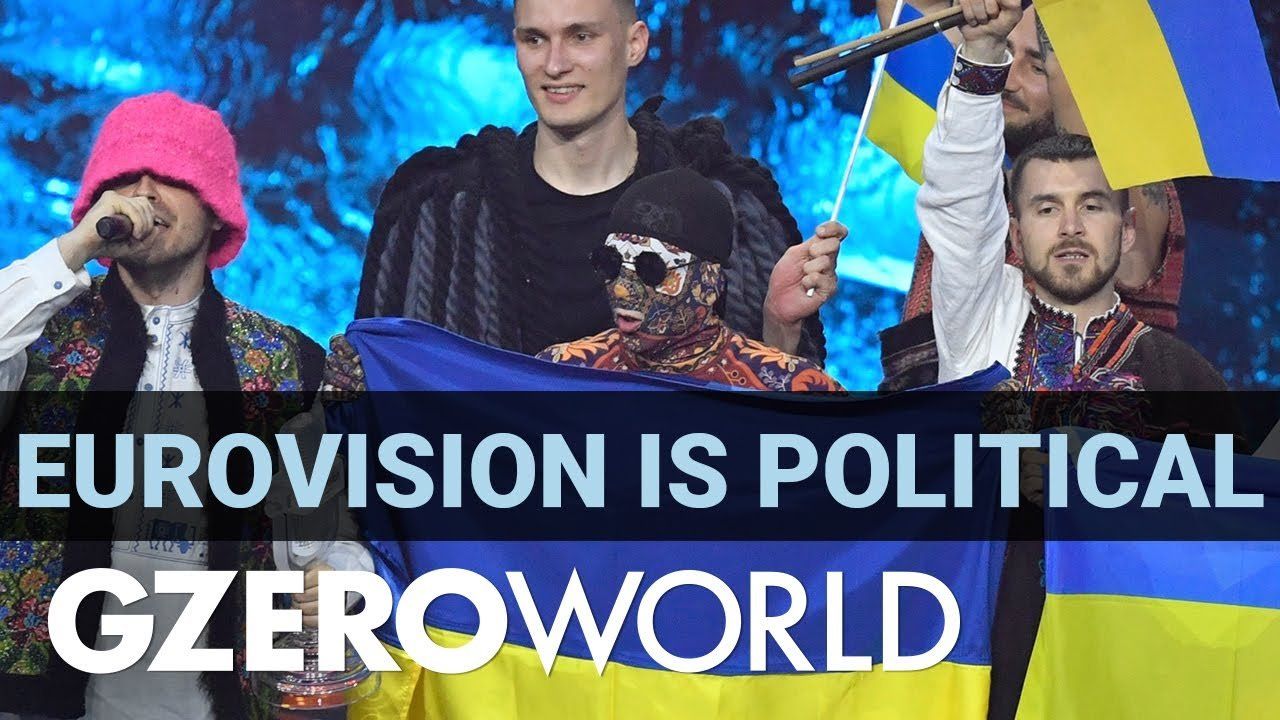
Where else will you find banana-inspired wolves, dubstep rapping astronauts, or earworms about vampires? It’s Eurovision, of course: the 70-year-old song contest that pits nations against each other in an annual spectacle of camp, kitsch, and catchy melodies.
But for Ukrainians – who have won the contest three times in the past 20 years – the contest is about something much more.
On GZERO Reports, we visit a secret Eurovision watch party outside of Kyiv, a drag party in New York City, and look at how Eurovision is more political than you – or those wolves, astronauts, and vampires – could imagine.
For the uninitiated, the colorful annual Eurovision Song Contest pits countries against each other in a spectacle of camp, kitsch, and catchy pop music. It’s like the Olympics meets American Idol meets Burning Man. Each country submits an original song, and the winner is chosen through a combination of audience and professional jury votes.
The European Broadcasting Union, which organizes Eurovision, says the contest isn’t political (they turned down Ukrainian President Volodymyr Zelensky's request to speak at the finale), but in its almost 70-year history, politics have always found a way of creeping in.
Last Saturday’s Grand Finale was no exception. This year’s contest, held in Liverpool, England, was full of messages of unity and support for Ukraine, who could not host Eurovision after winning in 2022 because of the Russian invasion. GZERO traveled to two very different Eurovision watch parties—one in the heart of New York City and one in an undisclosed location on the outskirts of Kyiv—to see how politics and pop music come together for fans around the world.
"Just to see so much solidarity and so much diversity of thought and backgrounds embracing Ukraine through the power of music is very encouraging,” said Maxim Ibadov, the National Coordinator of RUSA LGBTQ+ and organizer of the NYC event, “Because Ukraine has beautiful culture and I’m so happy it’s being celebrated.”
Watch the upcoming episode of GZERO World with Ian Bremmer on US public television, airing nationwide. Check local listings.
- Hard Numbers: German arms for Ukraine, Serbia rejects ‘thoughts and prayers,' deadly storm hits Myanmar and Bangladesh, Sweden sweeps Eurovision ›
- The Graphic Truth: Eurovision – beating swords into microphones, sort of ›
- Hard Numbers: Ukraine wins Eurovision, Somalia’s new prez, Venezuela woos investors, CDU victory ›